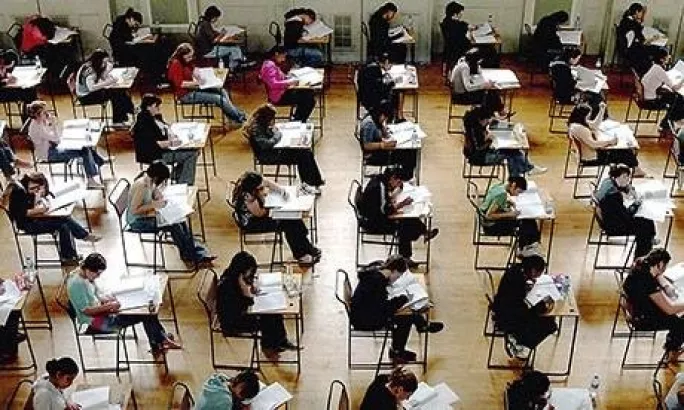‘Despite years of marking exam papers, I know I will get something wrong’
Nicole S. Kypker, sociology lecturer and A-level examiner, writes:
It’s that time of year again. My living room has turned into a storage facility for hundreds of AS-level exam papers. Over the next few weeks, my private life will be non-existent - weekends and evenings will be spent marking paper after paper. It’s no fun. Actually, it’s pretty horrible.
Every teacher knows how part of your brain dies if you read too many student essays. This, my annual exam marking exercise, is the ultimate “markathon” endurance test, although the experience is somewhat sweetened by the fact that for once, there is a pay cheque at the end of it all.
Examiners, or, to be precise, examination boards have not had a lot of good press recently. And in extreme cases, such as the 2012 English GCSE (let’s change the grade boundaries as we go along and not tell the teachers) scandal, that is fully justified. At the FE college I worked in back then, the unexpected barrage of poor results put at risk the life chances of our cohort of severely disadvantaged students, and left the staffroom in shock for several weeks. Generally, however, my experience as an employee of the boards has been one of dealing with committed professionals.
I have just passed my online standardisation and been found fit for marking purposes. Fifteen papers had to be marked on the online system, with both online comments and intermittent advice from my team leader at hand to make sure I understand the mark scheme and grade the papers consistently.
There is no doubting the rigour of the process - if you differ from the expected overall grade too often, or by too great a margin, you have to submit an extra sample, after which you may or may not be cleared to mark.
We examiners have also been informed that new, random checks of the quality of our work have been introduced this year. And a few weeks after results day, once teachers have had the opportunity to query grades and ask for remarks, I will be told if I can do it all over again next year. If there are too many justified complaints, I won’t be invited to mark again.
I’m glad for it. For I know this: despite the fact that I have years of experience teaching my subject and marking exam papers, I know I will get it wrong - just, hopefully, very rarely.
But ever since I started working for the examination board, I have lost all deference to the authority of the all-knowing examiner. Instead, I have never taken my students’ exam results at face value, and have regularly demanded a remark over every grade that was unexpectedly low - in most cases, successfully.
When one of my shining stars (and then Olympic hopeful) found an E on her results letter, I immediately demanded to see her paper. It turned out to be a “clerical error”, that is, someone had overlooked the marks for one particular question. Once these were added on, she had the A grade that, for those who knew her, had been a certainty all along.
Sometimes the situation is more challenging. Last summer, my AS students received uncomfortably average results. Had I lost my teaching magic? I asked to see ten scripts, and spotted marking mistakes I would never have noticed had I not graded that very paper eight weeks prior. I knew I was dealing with significant undermarking, and as one whole center (school or college) is, in my subject, marked by one examiner, I knew I had to face the complex and lengthy process needed to demand a whole-center remark.
Examination boards like to save face, especially in times of increased media interest. I filled in the forms, spent hours running from managers’ to exam officers’ desks and eventually, all my students were awarded an extra four marks - for some, the difference between progressing to A2 or leaving the college.
I understand the marking process as a human one now. And I know that these confidently scribbled digits on my students’ answer booklets were probably written by someone who was very professional, very knowledgeable - and utterly stressed out. At least if the examiner is holding down a full-time teaching job while grading.
And those examiners who are not currently teaching the subject they are assessing are, arguably, even more likely to misjudge. There is, of course, never any excuse for awarding a student the wrong grade. There might not be a simple solution. For some examination boards, all marking is done online now, with the constant possibility of undetectable surveillance by the team leader. Generally, valuing examiners, through pay rates and time allocated for exam marking by schools and colleges, might work to minimize human error.
I try and remind myself constantly that behind every single one of the hundreds of exam scripts in my living room is an AS student whose future may depend on my deciding on this final mark or that. I try to make the time to read some of the rather dreary essays twice, maybe three times, to get it right, at least as often as humanly possible.
But enough procrastination. These scripts are still in my living room.
Keep reading for just £1 per month
You've reached your limit of free articles this month. Subscribe for £1 per month for three months and get:
- Unlimited access to all Tes magazine content
- Exclusive subscriber-only stories
- Award-winning email newsletters




